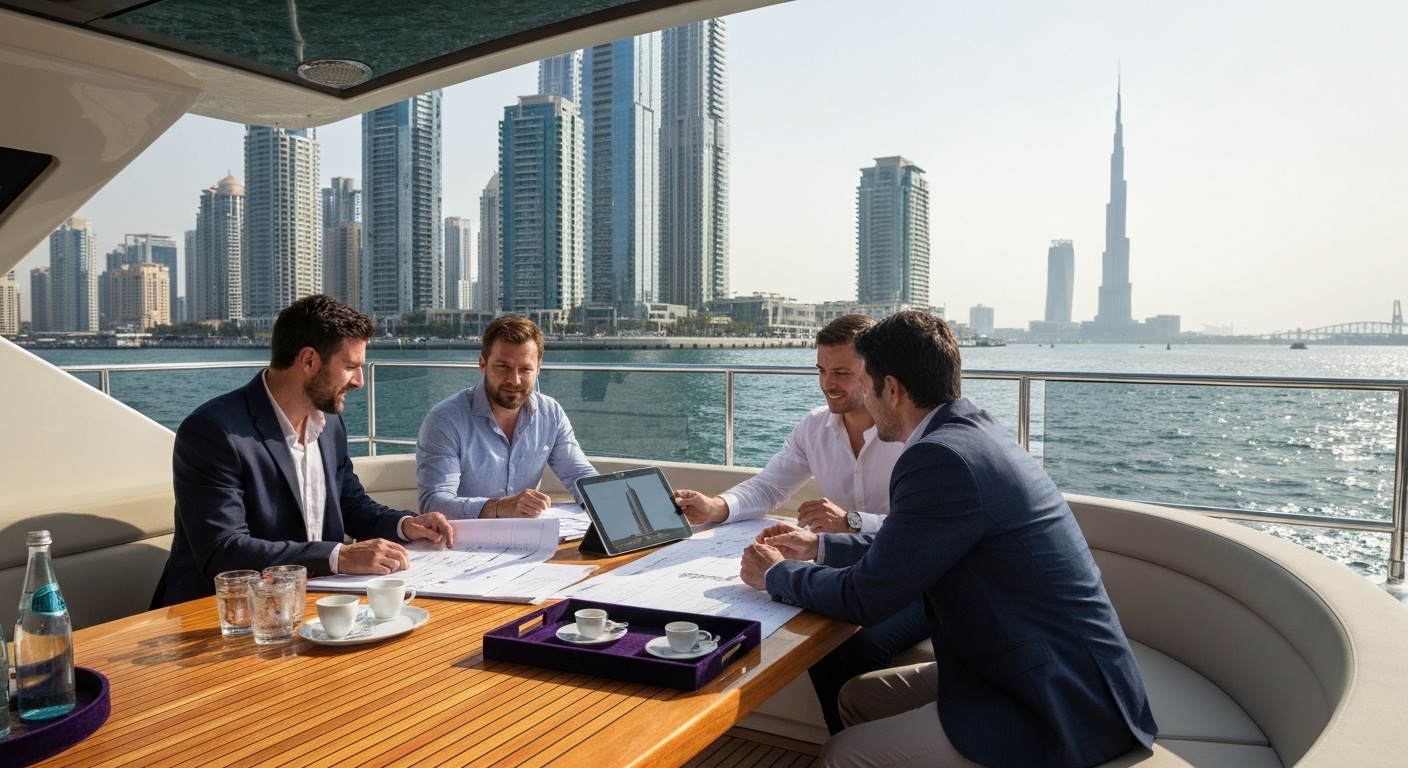Buying Dubai property with co-investors: options and risks 2025 is a topic of rising interest among investors seeking diversified exposure to the UAE real estate market. This article outlines how co-investment in Dubai property works, especially through leading developers like Danube Properties, discussing the available options, the main risks, and what to expect in 2025.
What is Co-Investment in Real Estate Development?
Co-investment in real estate involves multiple investors pooling financial resources to acquire or develop a property. Instead of a single individual or entity bearing full ownership and risk, co-investors share both the capital outlay and the returns, based on their respective stakes. This structure is particularly attractive in prime real estate markets such as Dubai, where property prices and development costs continue to rise and project diversification is in high demand.
Dubai’s 2025 property market offers one of the most mature and diverse co-investment environments globally. According to a 2025 market guide by Properstar, options range from ultra-luxury residences in Downtown Dubai to affordable, smart-living projects in emerging neighbourhoods. Whether investing in off-plan projects, branded residences, or mixed-use developments, co-investors benefit from shared access to premium assets that might otherwise be out of reach. The robust regulatory framework and governance in Dubai further strengthen the security of these investments, ensuring long-term asset protection for high-net-worth individuals, limited partners, and institutional investors.
How Co-Investment Works in Danube Properties Projects
Danube Properties, renowned for timely delivery and innovation, actively facilitates co-investment opportunities across its diverse development portfolio. With market-responsive project launches in key Dubai neighbourhoods—such as Glitz Residence, Starz, Miraclz, Elitz, and Oceanz—Danube appeals to both local and global wealth managers looking to participate in Dubai’s ongoing property boom.
Typical Co-Investment Process Example
A co-investment project with Danube usually begins with a group of investors registering their interest either directly or via a syndication platform. Investors conduct due diligence on project details, such as asset location, payment plans, and projected yields. After agreement on shareholding and contractual arrangements, funds are pooled and allocated to a specific project—whether it’s the luxury-focused “Oceanz” or the more accessible “Gemz” or “Skyz” developments. Profits—such as rental income or capital gains upon resale—are then distributed proportionally.
Danube’s history of successful project delivery makes it a preferred co-investment partner in the UAE, ensuring that each investor benefits from strong market expertise and hands-on asset management.
Advantages of Co-Investing with Danube Properties
Choosing a co-investment strategy with a trusted developer offers several distinct advantages:
- Diversified Portfolio Access: Investors can participate in multiple segments—from luxury to budget-friendly—across strategically located neighbourhoods.
- Innovative Payment Plans: According to research published by William Blair, Danube Properties employs front-loaded payment plans, typically collecting 35% to 40% of a property’s value in the first 12 months and only 10% to 20% at handover, which can greatly reduce construction risk for investors.
- Strong Regulatory Environment: Updated Dubai property laws for 2025 have strengthened transparency, ownership rights, and dispute resolution, making transactions more secure for all parties, as highlighted by Driven Properties.
- Potential for Higher Yields: Pooling funds unlocks access to larger or more profitable projects that offer superior ROI compared to individual investments.
Understanding the Risks and Mitigation in Real Estate Co-Investment
Every co-investment carries specific risks. The most prominent are:
- Alignment of Interests: Disagreements between co-investors regarding exit timing or investment management can lead to disputes.
- Market Volatility: Real estate values in Dubai, while generally on an upward trend, can fluctuate due to macroeconomic or geopolitical factors.
- Liquidity Constraints: Exiting a co-investment may be more complex than selling a solo-owned property, as transfer of shares or ownership rights may require consensus.
- Project Delivery Risks: Delays or changes in project scope, though mitigated with reputable developers like Danube, can affect returns.
Mitigation requires thorough legal structuring, clear co-investment agreements, and transparent updates from the developer throughout the project’s lifecycle (verify Danube KB for deeper specifics).
Conclusion
Buying Dubai property with co-investors: options and risks 2025 gives investors access to a dynamic, well-regulated market with diverse project choices and strong governance. Danube Properties, with its history and innovative approach, stands out as a reliable partner for those seeking to benefit from Dubai’s real estate growth while managing co-investment risks efficiently. For a tailored investment strategy or more insights on active co-investment opportunities, contact Danube Properties to learn more.
References and suggested reading:
– Properstar — Buying Property in Dubai as a Foreigner: 2025 Guide (external reference)
– William Blair — Dubai Real Estate: Still an Oasis of Growth in 2025? (external reference)
– Driven Properties — Dubai Real Estate Laws, Rules for 2025, and Regulations for Investors (external reference)




